In Mongolia, since 1990, the government finance has become tight, due to the economic chaos caused by a market economy, in addition to the suspension of the aid from the former Soviet Union. These factors have caused various problems even in education fields such as the decline in the quality of teachers, undeveloped special education, insufficient teaching materials and facilities. It is especially required to improve the educational administration capabilities and to develop human resources that will engage in local educational administration.
Along with the introduction of "The New Education Standard" in 2005, the period of elementary education has been extended from four to five years, and the starting age for entering a school has been lowered from eight years old to seven. In “The New Education Standard”, they are trying to make the shift to child-centered education from conventional rote learning one. However, the problem is that their true intention does not correctly come down to the teachers at the worksite.
With the innovation of education system, the Ministry of Education established four "Teaching Methods Improvement Centers” in Elementary, Science, Math, and IT fields, jointly with Mongolian National University of Education and National University of Mongolia.
At each center, the new teaching method has been developed. Given this situation, they requested us to assist these Centers in developing the teaching methods. (Taken out and summarized from the overview of “The Joint Project for the Improvement of Teaching Methods towards the Promotion of Development in Mongolian Basic Education”.
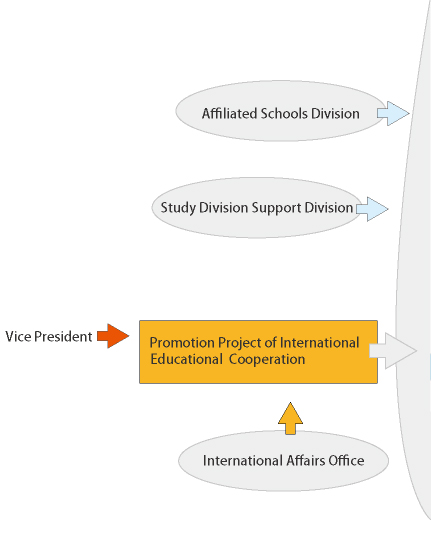
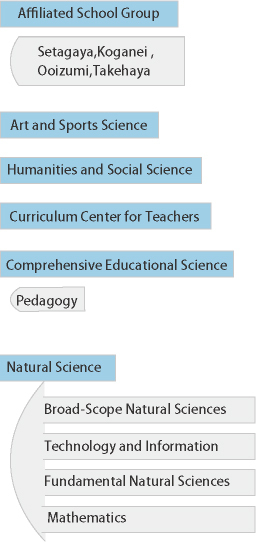
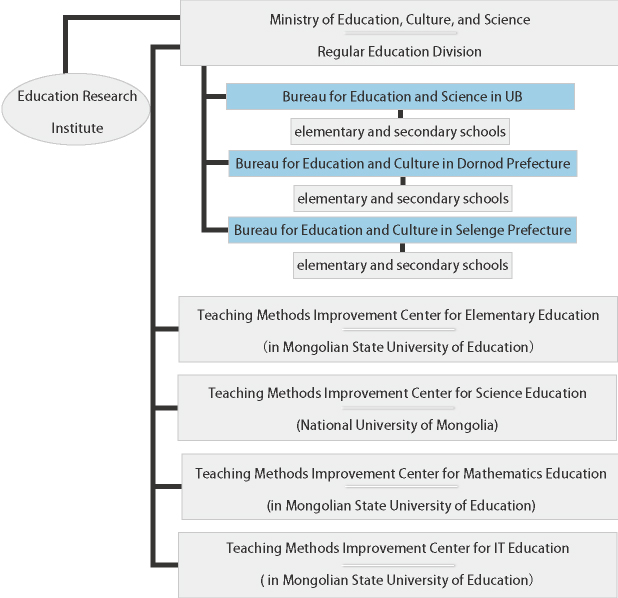
Eight working groups based on four “Teaching Methods Improvement Centers” aim to develop, evaluate and spread the teachers’ guidebooks which cover concrete examples necessary to conduct "Learner-Centered Study" in elementary and secondary education in Mongolia.
We, Tokyo Gakugei University support this Project in both theory and practice by seeking organizational partnership not only with the relevant faculty members of Tokyo Gakugei University (hereinafter called TGU) but also with the teachers of the affiliated schools.

・ Coordinator Prof.Hiroshi Takahata Experts Group
・Experts Group
Science
Prof. Masatoshi Saikawa
Prof. Masahiro Kamata
Prof. Akiteru Fukuchi
Arithmetic/mathematics
Prof. Hiroshi Takahata (
IT education
Prof. Fumihiko Shinohara
Integrated learning
Prof. Shigeru Asanuma
Lecturer Takako Toda
A total of 7 persons
・Relevant courses and classes which support the experts
As for science, arithmetic/mathematics, IT, integrated learning, those that assist are the related departments, divisions and the Curriculum Center for Teachers. We also gain the cooperation of our affiliated schools, and other public and private schools in the form of open classes. In 2006 year, the trainees in Mongolian language and fine art fields accompanied us to expand our support in those courses, although the experts in those fields were not sent.
・Divisions in charge of office duties: International Affairs Office, Study Division Support Division of TGU
・Three members from KRI International Corporation work jointly with us as the Project members.

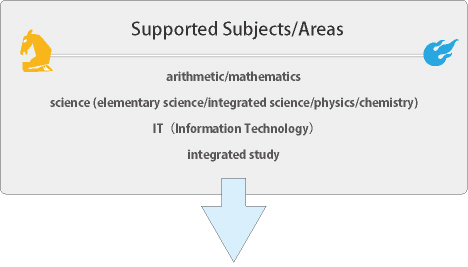
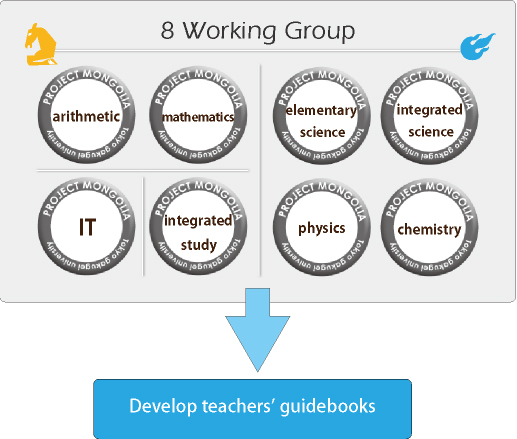
![Copyright[c]Tokyo Gakugei University Project Mongolia 2007 all rights reserved](../img/to_to_top.jpg)